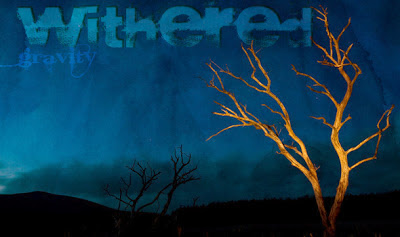The Last Breath of Jesus
In a tired and almost last breath, Jesus looks up after hours of hanging on the cross and says to Mary and the Beloved disciple, “Woman, here is your son; friend, here is now your mother.”
Seconds before Jesus’ death, the author of the gospel of John has Jesus saying to Mary and the Beloved disciple that they are now family.
Think about it for a moment – after being tortured, flogged, spat upon, head crushed, ribs broken, side punctured, hands nailed, feet smashed, and body bruised – our Lord looks up with the energy of one more breath to say one more thing and it is important, it is direct, it is for us to hear.
And so in that sacred moment Jesus says, “Woman, here is now your son; friend, here is your mother.”
From a social standpoint I will concede that this doesn’t make sense. Maybe if the woman were Jesus’ wife and the man was Jesus’ younger brother we could see such a moment take place with Jesus saying, “Brother, this woman is now your wife.” But that’s not what is happening here. It is not customary for a son to give his mother away to a friend. There is no need for Jesus socially to make this claim.
So there must be more here.
There is a new relationship joining at the foot of the cross. There is fellowship taking place. God is orchestrating a turn in history, a paradigm shift, and it is happening with the dying breath of Jesus Christ. A new family is forging. A new community is forming.
The death (and Resurrection) of our Lord and Savior brings people together from all across the globe to unite under one banner, one accord, one voice, one unshakable and alluring totem.
The last breath of Jesus forged a union, a fellowship, a bond of sisterhood and brotherhood that stretches beyond national borders and even generations. We are now in relation to all people. We are now family with all people. We are sisters and brothers in Christ. The last breath of Jesus pulls humanity together, unites all people under the banner that screams louder now than ever, “We are all God’s people.”
Did the author of John mean for us to interpret God bringing humanity together in the death of Jesus – I’m not sure. I just know I can’t read John 19 without seeing Jesus as the conduit for all humans – everywhere. May we all begin to see how we are all connected through the death and resurrection of Jesus Christ.
Seconds before Jesus’ death, the author of the gospel of John has Jesus saying to Mary and the Beloved disciple that they are now family.
Think about it for a moment – after being tortured, flogged, spat upon, head crushed, ribs broken, side punctured, hands nailed, feet smashed, and body bruised – our Lord looks up with the energy of one more breath to say one more thing and it is important, it is direct, it is for us to hear.
And so in that sacred moment Jesus says, “Woman, here is now your son; friend, here is your mother.”
From a social standpoint I will concede that this doesn’t make sense. Maybe if the woman were Jesus’ wife and the man was Jesus’ younger brother we could see such a moment take place with Jesus saying, “Brother, this woman is now your wife.” But that’s not what is happening here. It is not customary for a son to give his mother away to a friend. There is no need for Jesus socially to make this claim.
So there must be more here.
There is a new relationship joining at the foot of the cross. There is fellowship taking place. God is orchestrating a turn in history, a paradigm shift, and it is happening with the dying breath of Jesus Christ. A new family is forging. A new community is forming.
The death (and Resurrection) of our Lord and Savior brings people together from all across the globe to unite under one banner, one accord, one voice, one unshakable and alluring totem.
The last breath of Jesus forged a union, a fellowship, a bond of sisterhood and brotherhood that stretches beyond national borders and even generations. We are now in relation to all people. We are now family with all people. We are sisters and brothers in Christ. The last breath of Jesus pulls humanity together, unites all people under the banner that screams louder now than ever, “We are all God’s people.”
Did the author of John mean for us to interpret God bringing humanity together in the death of Jesus – I’m not sure. I just know I can’t read John 19 without seeing Jesus as the conduit for all humans – everywhere. May we all begin to see how we are all connected through the death and resurrection of Jesus Christ.




Comments